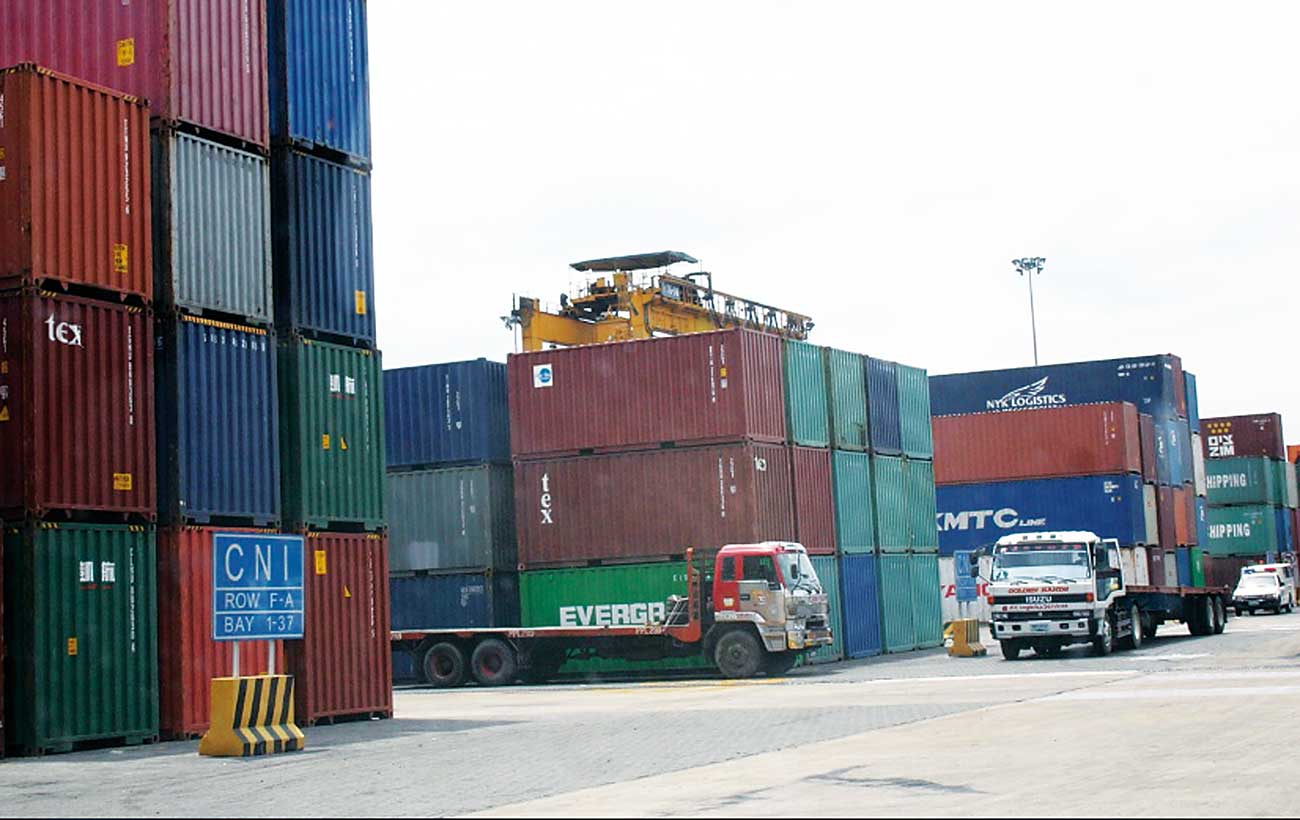The Bureau of Customs (BOC) will look into the possibility of pushing for amendments of existing regulations to avoid accumulation of cleared shipments in ports.
In a Viber message yesterday, Vincent Philip Maronilla, BOC assistant commissioner and spokesperson, said the agency is looking at the possible imposition of higher fees for cleared containers yet to be claimed within the given time frame and shortening the 30-day grace period on unclaimed shipments.
“Those are things we will be looking into to avoid any form of abuse of existing regulations,” Maronilla told Malaya Business Insight.
“Consultation with our stakeholders will also be made,” he added.
Based on Section 1129(d) of the Customs Modernization and Tariff Act, importers must claim
their shipments within 30 days from payment of duties and taxes, or the shipments will be declared abandoned.
The BOC will proceed with abandonment proceedings if any shipments remain unclaimed after this period.
The bureau recently reported that at the Port of Manila, 258 containers of rice remain in the yard, of which 237 containers have already been cleared for release after payment of duties and taxes.
The remaining 21 containers, accounting for 8.13 percent, had their Goods Declarations lodged only on September 20, 2024, and are still in the process of being cleared.
Similarly, at the Manila International Container Port, 630 containers of rice remain in the yard.
Of these, 492 containers have been cleared for release, while 138 containers are still pending payment of duties and taxes.
“In our assessment, it is likely that this situation of rice shipments pending in our ports will not yet affect rice prices since it has not yet been that long,” Maronilla earlier said.
“Nevertheless, we’re still going to push for the consignees to pick these up and bring these shipments to their respective destinations,” he added.
Force majeure
In a statement, Secretary Francisco Tiu Laurel of the Department of Agriculture (DA) said the delay in the shipment and delivery of imported farm products recently was “caused by force majeure,” referring to the weather disturbances in July and in August.
The Philippine Ports Authority (PPA) earlier said hundreds of container vans loaded with food products including rice have been sitting in Manila ports, with some of them left unattended for several months as consignees delay their withdrawal.
Tiu Laurel said the “prompt action” of the PPA and BOC would facilitate the swift movement of imported agricultural products to increase supply and lower retail prices.
Port officials suspect consignees were trying to reduce warehousing cost were waiting for prices of the food items to increase as they appear to have imported these items at higher prices than current retail costs.
Tiu Laurel said a closer cooperation with BOC and PPA will help the government improve the timing of importations to enhance management of domestic food supply and ensure food security.
“This would help improve our supply and price forecasting and avoid artificial shortages caused by product hoarding. Data that we will gather will also help us determine which importers to blacklist, if needed,” Tiu Laurel said.
DA is considering adding requirements to the import permits issued by its agencies, particularly the Bureau of Plant Industry and Bureau of Animal Industry, to ensure imported agricultural food products are immediately delivered to warehouses and sold to the market.
No impact on prices
Arnel de Mesa, DA assistant secretary and spokesman, said that even if overstaying container vans are all loaded with rice, the likely volume is just a small percentage of the 3.9 million metric tons (MT) of imported rice and won’t affect rice prices in the market.
De Mesa said retail prices of rice have started to decline from around P50 per kilogram (kg) to P42 per kg for imported well-milled rice and P45 per kg for local well-milled rice.
DA said prices should ease further as the full impact of the recent tariff reduction is felt by January.
Investigation ongoing In a press statement of the Presidential Communication Office yesterday, Laurel said some of owners and the consignees of the 888 overstaying containers at the Manila Port have already shut down operations.
Some of these containers contained an estimated 23 million kilos of imported rice, the PCO said.
Laurel said the DA is looking into possible criminal liabilities on the part of the consignees.
Laurel said the agricultural products, particularly rice, from the abandoned containers would undergo testing to determine if it is still safe for consumption.
He said if declared safe, the BOC would determine what to do with it including its possible used in the different government programs such as the Kadiwa project.




